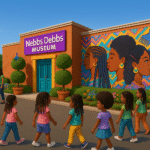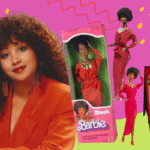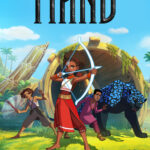
Black girls in America often face a unique and troubling form of bias known as adultification, where they are perceived and treated as more mature than their actual age. This perception strips them of the innocence typically afforded to children, leading to a cascade of adverse outcomes that permeate various aspects of their lives. Understanding the depth and implications of this bias is crucial to addressing the systemic challenges that hinder the holistic development of Black girls.
Adultification Bias: The Premature Loss of Innocence
Adultification bias is a form of racial prejudice where Black children, especially girls, are viewed as more adult-like and less innocent than their white peers. This bias manifests in perceptions that Black girls require less nurturing, protection, and comfort. A seminal study by the Georgetown Law Center on Poverty and Inequality revealed that adults perceive Black girls as needing less support and believing they know more about adult topics, including sex, than white girls of the same age. This distorted perception can lead to expectations that Black girls should behave more responsibly and are less deserving of leniency, effectively robbing them of their childhood and the care that should accompany it.
Disproportionate Disciplinary Actions in Educational Settings
The misperception of Black girls as older and less innocent contributes significantly to harsher disciplinary measures in schools. According to a report by the U.S. Government Accountability Office, Black girls represent 15% of all girls in public schools but account for nearly half of all suspensions and expulsions. These punitive actions often stem from subjective infractions such as “defiance” or “disruption,” reflecting underlying biases in the interpretation of their behavior. The disproportionate punishment not only hinders academic achievement but also increases the likelihood of involvement with the juvenile justice system, perpetuating a cycle of marginalization and limited opportunities.
The Burden of Oversexualization
Historically rooted stereotypes have led to the hypersexualization of Black females, affecting even young girls. This oversexualization manifests in various ways, including the policing of their attire and behavior, and contributes to a culture where Black girls are viewed through a sexualized lens from an early age. Such perceptions can lead to victim-blaming and a lack of protection when they face harassment or abuse. The internalization of these harmful stereotypes can have profound effects on self-esteem and mental health, further complicating their navigation through adolescence.
Addressing the Challenges: A Call to Action
The compounded effects of adultification, oversexualization, and disproportionate discipline necessitate comprehensive strategies to protect and empower Black girls:
-
- Cultural Competency Training: Educators and authority figures should undergo training to recognize and mitigate implicit biases, ensuring fair treatment of Black girls in schools and other institutions.
-
- Policy Reforms: Implementing policies that promote equitable disciplinary practices can help reduce the disproportionate punishment of Black girls.
-
- Community Support Programs: Establishing mentorship and support networks can provide Black girls with safe spaces to express themselves and develop resilience against societal biases.
-
- Challenging Stereotypes: Media representations should be scrutinized and reformed to portray Black girls and women in diverse and empowering roles, combating harmful stereotypes.
The societal challenges faced by Black girls are deeply entrenched and multifaceted, stripping them of the carefree experience of childhood. Addressing these issues requires a concerted effort from individuals, communities, and institutions to dismantle biases and create environments where Black girls can thrive without undue burdens. By acknowledging and actively combating these injustices, society can move closer to ensuring that all children are allowed the innocence and freedom that childhood should embody.







